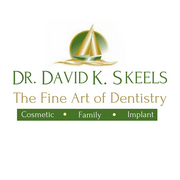
The health of your teeth and gums can have significant impacts on your physical health and overall well-being. While regular teeth cleanings will help, some bacteria that linger in your mouth can cause gingivitis, cavities, and other long-term diseases, such as periodontal disease, if they’re allowed to sit for too long. To help you better understand what periodontal disease is, here is a guide to some of the most frequently asked questions.
4 Common Questions About Periodontal Disease
What is periodontal disease?
Periodontal disease is commonly referred to as gum disease and is caused by untreated gingivitis. Gingivitis is caused when plaque and bad bacteria build up along the gum line. Infections occur where there is a significant amount of plaque, causing the gums to become inflamed and bleed. However, even if your gums are sore and bleed on occasion, that does not mean that you have periodontal disease.
What are the signs of periodontal disease?
 The inflammation caused by plaque and bad bacteria can seep below the gum line and begin to eat away at the connective tissues around your teeth and jawbone. Some of the most common symptoms of the disease are:
The inflammation caused by plaque and bad bacteria can seep below the gum line and begin to eat away at the connective tissues around your teeth and jawbone. Some of the most common symptoms of the disease are:
- A receding gumline
- Persistent bad breath or a bad taste in your mouth
- Loose or shifting teeth
- Gums that bleed during and after brushing
- Red or swollen gums
- Formation of deep pockets between teeth and gums.
While you might not have all of these symptoms, only a dentist or periodontist can diagnose whether or not you have the disease. They will also be able to help you establish a treatment plan moving forward.
Can this disease be reversed?
While you should stick with regular teeth cleanings, your dentist will also suggest nonsurgical therapies, such as scaling and root planing, to deep-clean your gums and teeth, removing plaque and food particles from below the gumline. Rough spots on your teeth are also removed to help promote the growth of healthy gums and connective tissues.
If the disease has progressed significantly, your dentist might suggest surgical options such as flap or pocket reduction surgery, bone grafts, or guided tissue regenerations.
What kind of toothpaste and mouthwash should I use?
You can help prevent the disease by taking the necessary steps at home. Regular teeth cleaning and brushing at home with a fluoride toothpaste will have a significant impact on the overall health of your teeth. You can also look for a mouthwash that contains fluoride and other bacteria-fighting agents.
If you’re a resident in Monroe County, NY, and are looking for a dental office with friendly staff members, contact Dr. David K. Skeels. You’ll get an individualized dental examination as well as a painless experience to give you the best smile possible. To become a patient, call (585) 467-7000. Visit them online for more information on all of their dental services. Servicing Webster, Greece, Penfield, Irondequoit, and Rochester, NY.
About the Business
Have a question? Ask the experts!
Send your question

